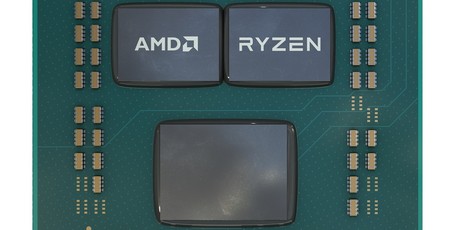
Memory Controller
One of our pet hates at the Ryzen launch was the hit-or-miss support for memory faster than 2,666MHz. Things were so bad that we had to drop down in frequency from our usual 3,200MHz just to get comparable numbers with Intel CPUs. However, through numerous refinements, AMD has improved the situation considerably over the last two years, and 3,466MHz is now readily achievable with a good memory kit. However, the actual memory controller has been improved with 3rd Gen Ryzen, allowing for much higher frequencies. This is important, because the memory speed is directly linked to AMD's Infinity Fabric high-speed interconnect - the faster you run your memory, the more performance you'll see, and this was especially noticeable in games.
However, things aren't quite as straight forward as dropping in a 4,000MHz kit and boosting those frame rates. Instead, you're able to run the Infinity Fabric up to 3,600MHz in a 1:1 ratio with the memory. We tried numerous kits, and this frequency was perfectly stable out of the box by simply applying the appropriate XMP profile - great news. However, above 3,600MHz, a divider kicks in, dropping the Infinity Fabric speed back to compensate. As a result, immediately above 3,600MHz you'll likely see slower performance just like you would in other situations that employ dividers, so really, going above this speed will mainly be the realm of extreme overclockers, and 3,600MHz will serve as the sweet spot, especially with memory prices being nice and low at the moment. We should point out that we were initially told the top limit here was 3,733MHz, but when we saw slower performance here, we double-checked with AMD and it was then confirmed that 3,600MHz is the upper limit for a 1:1 ratio.
Windows 10 Scheduler and Ryzen Driver
AMD hasn't had an easy time optimising Zen for use with Windows and software, and there's a lot of work that needed to be done. Thankfully, that should mean that we'll continue to see improvements as optimisation progresses, and the first major step is in how the Windows scheduler deals with Zen CPUs. Combining a new driver and an update in Windows 10's May 2019 (1903) rollout, processed threads now try to stick to a single Core Complex (CCX) to reduce latency that can occur if threads land in a separate CCX. With Zen 2's chiplet design, the latter situation could even have resulted in that second thread running on an entirely different chiplet.
There is of course the possibility of higher temperatures and power consumption for a specific CCX as a result of the new methodology, which attempts to fill a CCX with threads before spilling onto the another, but we're assuming the 7nm manufacturing process and spaced chiplet design counter those potentially problematic density issues enough to allow this approach to work.
Faster Clock Ramping
A second tweak coming from the Windows 10 1903 update is clock ramping, specifically a claimed 20x boost to the clock speed selection over what you'd see prior to the update. Latency, AMD claims, will fall from around 30ms to 1-2ms, which will allow frequencies to rise faster and boost performance in those early stages of load.
Precision Boost 2, Precision Boost Overdrive, and Automatic Overclocking
Much has been said about Precision Boost Overdrive in the past for the simple reason that all-core manual overclocks of Ryzen CPUs often fall short of the CPU's maximum low-core boost frequencies, potentially hindering lightly-threaded performance for overclockers. PBO allowed you to keep those high boost frequencies but also see a bump in the all-core boost.
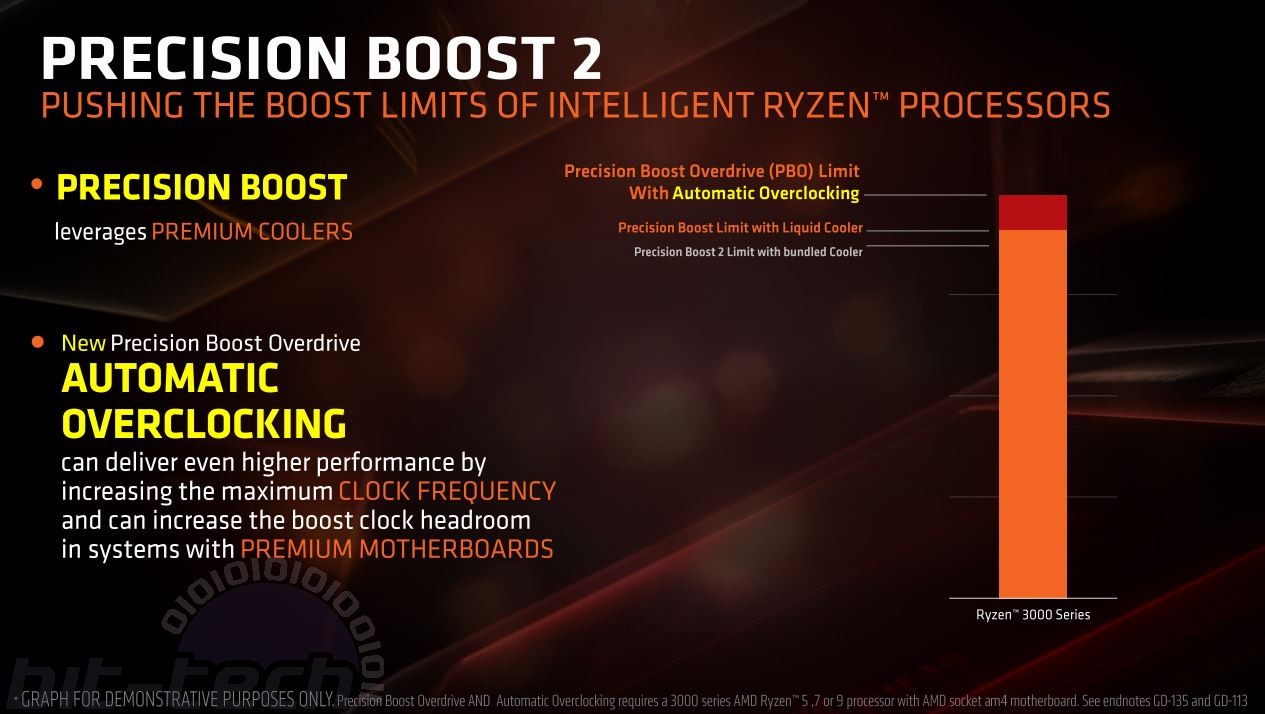

MSI MPG Velox 100R Chassis Review
October 14 2021 | 15:04

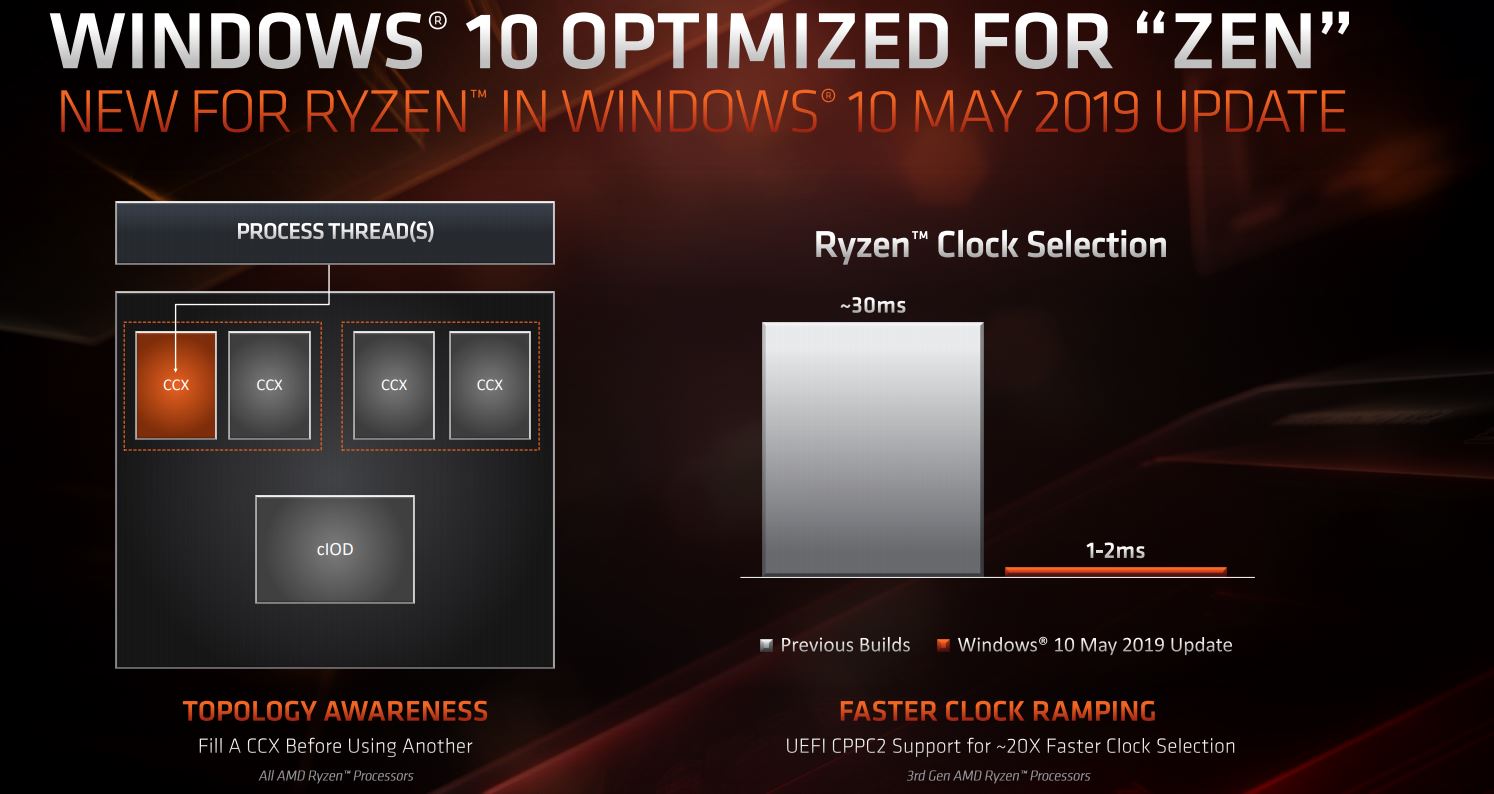
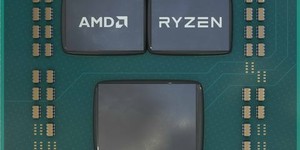
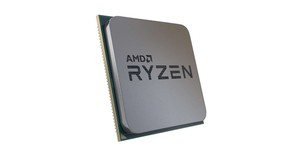
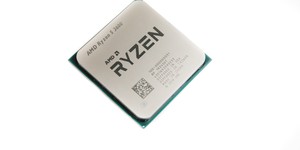





Want to comment? Please log in.